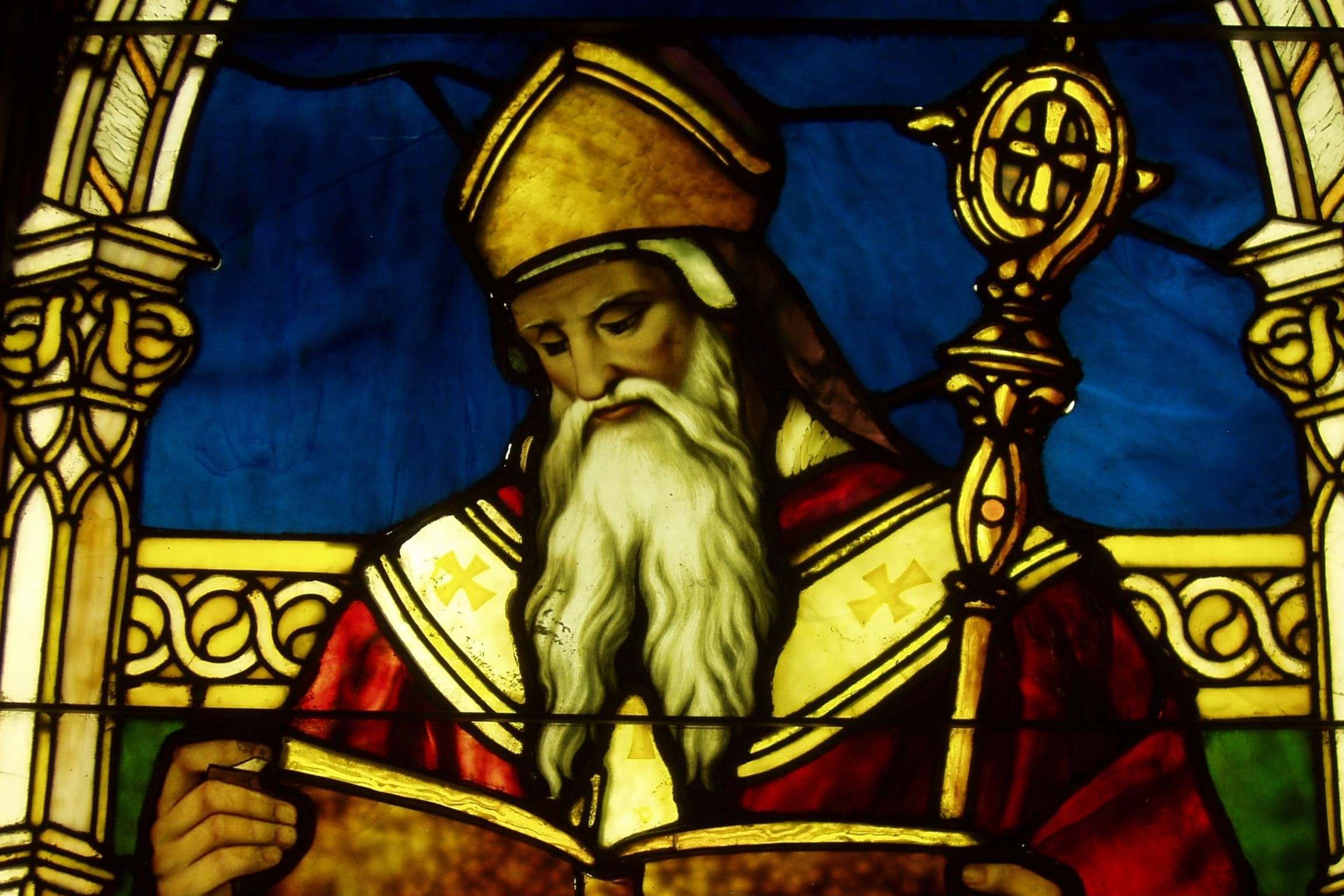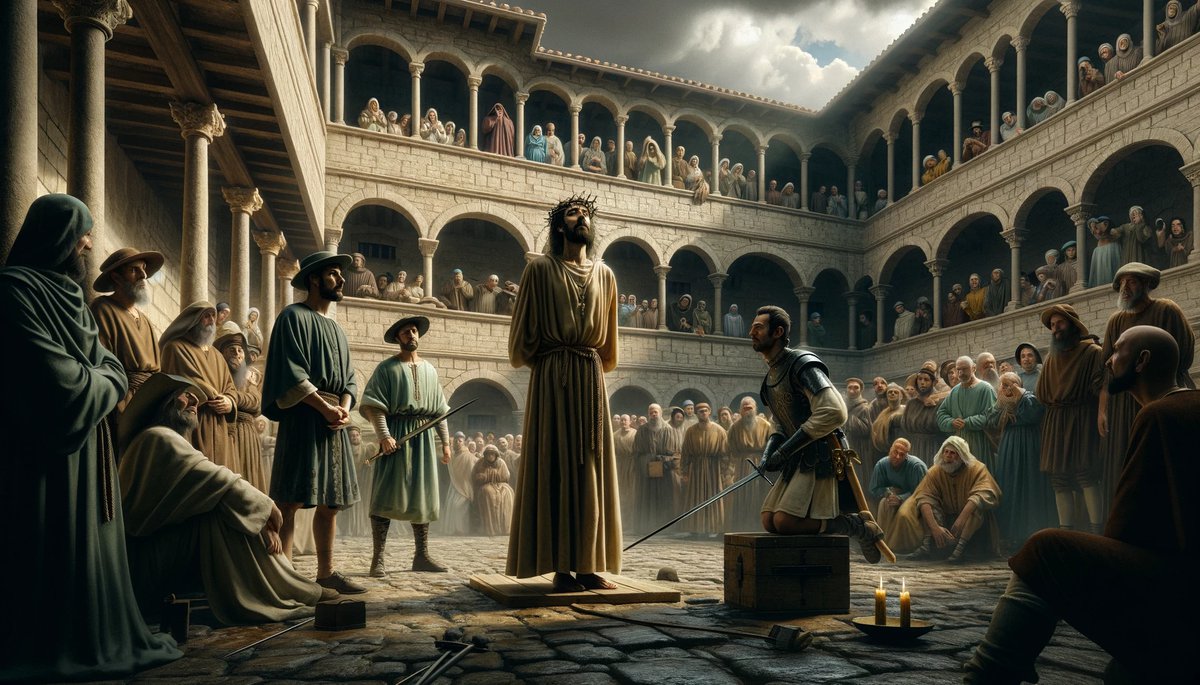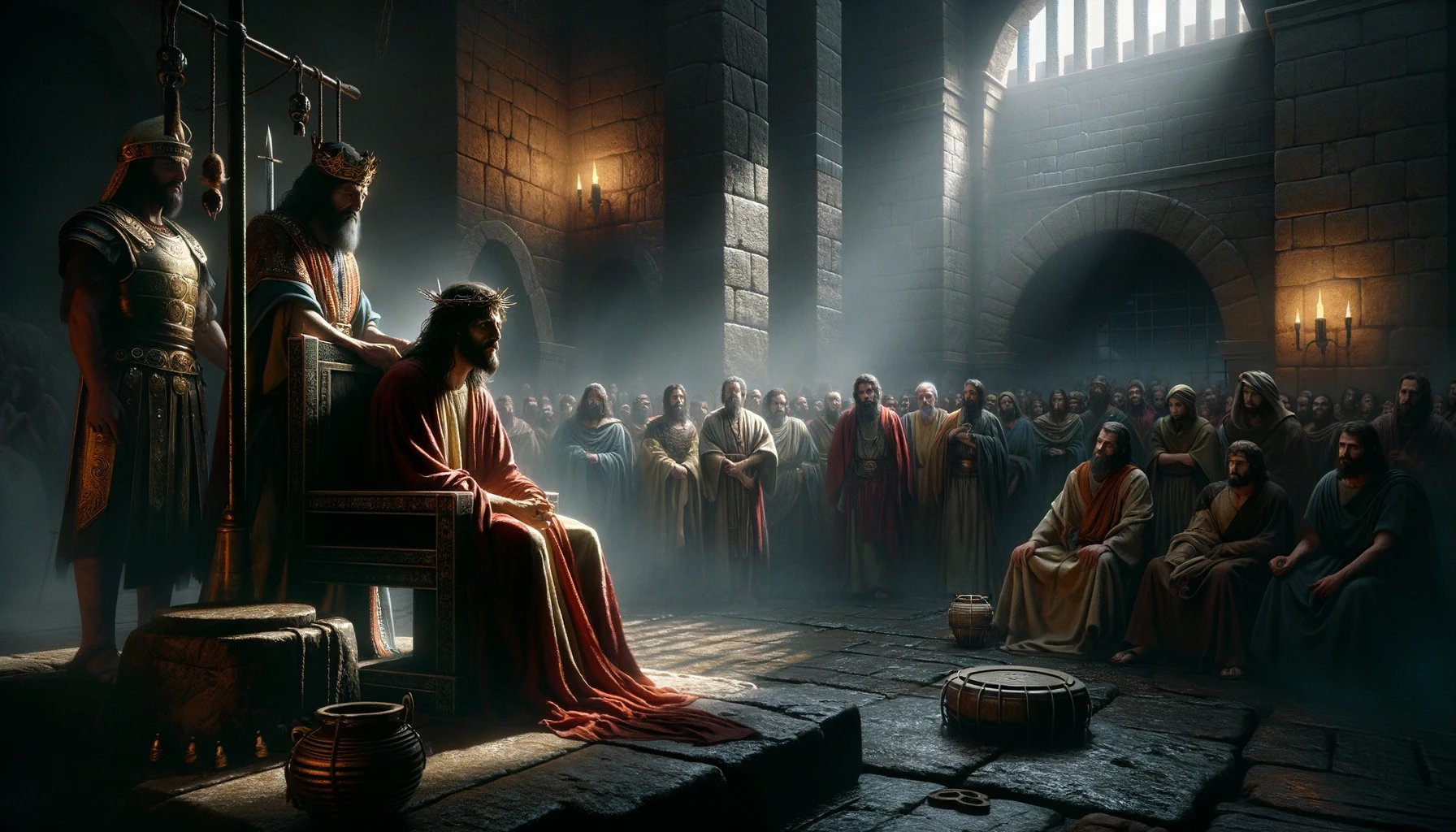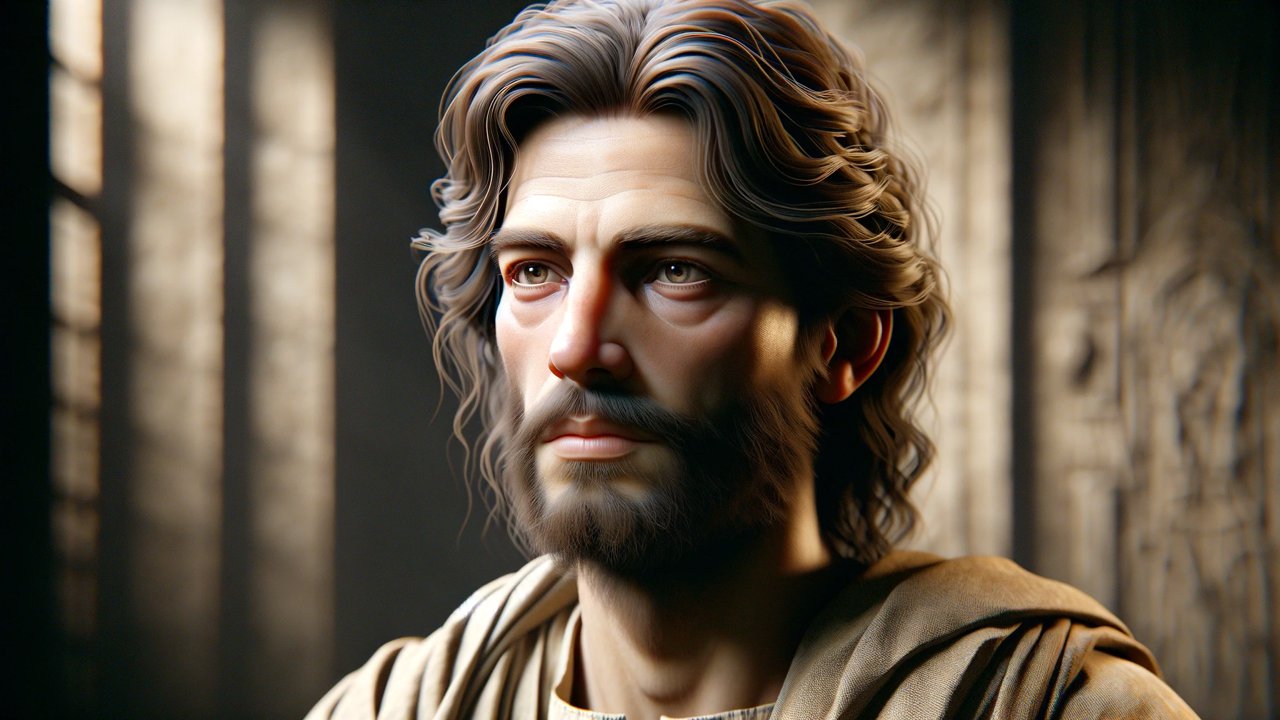Home>Christian Videos>Bible Stories>How Did Saint John The Baptist Die


Bible Stories
How Did Saint John The Baptist Die
Published: March 6, 2024
Jason DeRose, Managing Editor at Christian.net, uses his expertise in religion and journalism to deepen understanding of faith's societal impacts. His editorial leadership, coupled with a strong academic background, enriches the platform’s diverse content, earning him recognition in both journalism and religious circles.
Discover the biblical account of Saint John the Baptist's death and martyrdom. Explore the intriguing story of his life and ultimate sacrifice in the Bible. Gain insight into this compelling narrative.
(Many of the links in this article redirect to a specific reviewed product. Your purchase of these products through affiliate links helps to generate commission for Christian.net, at no extra cost. Learn more)
Table of Contents
Introduction
How did Saint John the Baptist die? This question has intrigued scholars and believers for centuries. The death of Saint John the Baptist is a significant event in Christian history, and it is shrouded in both religious and historical significance. Understanding the circumstances surrounding his death provides insight into the political and religious dynamics of the time, as well as the unwavering commitment of Saint John the Baptist to his beliefs. In this article, we will delve into the events leading to the death of Saint John the Baptist, shedding light on the historical and religious context of his ultimate sacrifice.
Read more: How Did The John The Baptist Die
The Imprisonment of Saint John the Baptist
The imprisonment of Saint John the Baptist marked a pivotal moment in his life and ultimately led to his tragic demise. John the Baptist fearlessly preached about repentance and the coming of the Messiah, drawing large crowds and gaining both followers and adversaries. His outspoken criticism of King Herod Antipas's marriage to Herodias, his brother's wife, incurred the wrath of the ruling elite. Herodias, in particular, harbored deep resentment towards John for publicly condemning her unlawful union with the king.
Despite the mounting opposition, John continued to fearlessly proclaim his message, undeterred by the potential consequences. His unwavering commitment to his beliefs ultimately led to his arrest and imprisonment by Herod Antipas. The imprisonment of Saint John the Baptist serves as a testament to his steadfast dedication to his divine mission, even in the face of persecution and imprisonment. This pivotal event set the stage for the tragic events that would ultimately culminate in his untimely death.
The Role of Herodias in Saint John's Death
Herodias played a pivotal role in the sequence of events that led to the death of Saint John the Baptist. Her deep-seated animosity towards John stemmed from his vocal condemnation of her marriage to Herod Antipas, her brother-in-law. Herodias, driven by a desire for revenge and to silence John's outspoken criticism, seized the opportunity to orchestrate his demise. The opportunity arose during a banquet held by Herod Antipas, where Herodias' daughter, Salome, captivated the king with her dance. In a calculated move, Herodias prompted her daughter to request the head of John the Baptist as a reward for her performance, exploiting the king's oath to grant her any request. Herod Antipas, torn between his oath and his regard for John, reluctantly ordered the execution of Saint John the Baptist. Herodias' cunning manipulation of the situation and her relentless pursuit of retribution were instrumental in sealing John's tragic fate. Herodias' role in Saint John's death serves as a stark reminder of the dangers of unchecked ambition and the devastating consequences of harboring resentment and seeking vengeance.
The Execution of Saint John the Baptist
The execution of Saint John the Baptist marked the culmination of a tragic sequence of events orchestrated by Herodias and carried out under the authority of Herod Antipas. Following the fateful request made by Salome, Herodias' daughter, for the head of John the Baptist, Herod Antipas, though reluctant, felt bound by his oath and the pressure of the public spectacle. The execution of John the Baptist was carried out in a manner that reflected the brutality and callousness of the ruling powers. John, imprisoned for his unwavering commitment to his beliefs, met his end at the hands of the executioner, his voice silenced but his legacy enduring. The execution of Saint John the Baptist stands as a poignant reminder of the perils faced by those who dare to challenge the status quo and speak truth to power. It serves as a testament to the enduring legacy of Saint John the Baptist, whose steadfast devotion to his faith and unwavering courage in the face of persecution continue to inspire and resonate through the annals of history.
-
Reluctant Compliance: Herod Antipas, torn between his oath and his regard for John, reluctantly complied with the request for John's execution. This internal struggle underscores the political and moral complexities that characterized the events leading to John's death.
-
The Brutality of Power: The manner in which John the Baptist was executed reflects the brutal exercise of power by the ruling elite. His unjust and violent end serves as a stark indictment of the abuse of authority and the suppression of dissent.
-
Enduring Legacy: Despite his untimely death, the legacy of Saint John the Baptist endures. His unwavering commitment to his beliefs and his willingness to sacrifice his life for the truth serve as a timeless example of courage and conviction in the face of adversity.
-
Symbol of Resistance: The execution of Saint John the Baptist transformed him into a symbol of resistance against oppression and a testament to the enduring struggle for justice and righteousness. His martyrdom continues to inspire individuals to stand firm in their convictions, even in the face of daunting challenges.
The execution of Saint John the Baptist stands as a poignant reminder of the perils faced by those who dare to challenge the status quo and speak truth to power. It serves as a testament to the enduring legacy of Saint John the Baptist, whose steadfast devotion to his faith and unwavering courage in the face of persecution continue to inspire and resonate through the annals of history.
The Legacy of Saint John the Baptist
The legacy of Saint John the Baptist transcends his untimely death, resonating through the annals of history and leaving an indelible mark on the Christian faith. His unwavering commitment to his divine mission and his fearless proclamation of truth in the face of adversity continue to inspire and guide believers across the globe. The enduring legacy of Saint John the Baptist is manifested in several profound ways, shaping the religious landscape and serving as a timeless testament to the power of faith and conviction.
1. Forerunner of Christ
Saint John the Baptist holds a revered position as the forerunner of Christ in Christian theology. His pivotal role in preparing the way for the ministry of Jesus Christ underscores his significance in the narrative of salvation. John's proclamation of repentance and his baptism of Jesus symbolize the transition from the old covenant to the new, signifying the arrival of the long-awaited Messiah. His unwavering dedication to his divine calling established him as a central figure in the fulfillment of biblical prophecy, solidifying his enduring legacy as the herald of Christ.
2. Moral Exemplar
The life and teachings of Saint John the Baptist serve as a moral compass for believers, offering timeless lessons in righteousness, humility, and unwavering faith. His ascetic lifestyle, marked by simplicity and self-denial, embodies a profound commitment to spiritual purity and devotion to God. John's uncompromising stance against injustice and moral decay serves as a poignant reminder of the enduring struggle for righteousness and the unwavering pursuit of truth. His legacy continues to inspire individuals to uphold moral integrity and stand firm in their convictions, even in the face of opposition.
3. Symbol of Courage and Sacrifice
Saint John the Baptist's martyrdom stands as a testament to the enduring power of courage and sacrifice in the face of persecution. His steadfast commitment to truth and righteousness, even at the cost of his own life, exemplifies the highest form of devotion to one's faith. John's unwavering courage in the face of adversity serves as an enduring source of inspiration for individuals confronting challenges to their beliefs, emboldening them to stand firm in their convictions and remain steadfast in the face of opposition.
4. Spiritual Relevance
The legacy of Saint John the Baptist continues to resonate in the spiritual lives of believers, serving as a source of spiritual renewal and inspiration. His call to repentance and his unwavering dedication to his divine mission inspire individuals to seek spiritual transformation and renewal in their own lives. The timeless relevance of John's message of repentance and spiritual awakening transcends temporal boundaries, offering a profound source of guidance and encouragement for believers seeking to deepen their faith and embrace a life of spiritual renewal.
The enduring legacy of Saint John the Baptist stands as a testament to the transformative power of faith, courage, and unwavering commitment to truth. His life and martyrdom continue to inspire and guide countless individuals, shaping the religious consciousness and serving as a timeless example of devotion and sacrifice. Saint John the Baptist's enduring legacy remains an integral part of the Christian faith, offering a profound source of inspiration and guidance for believers seeking to embrace the timeless truths embodied in his remarkable life and ministry.














